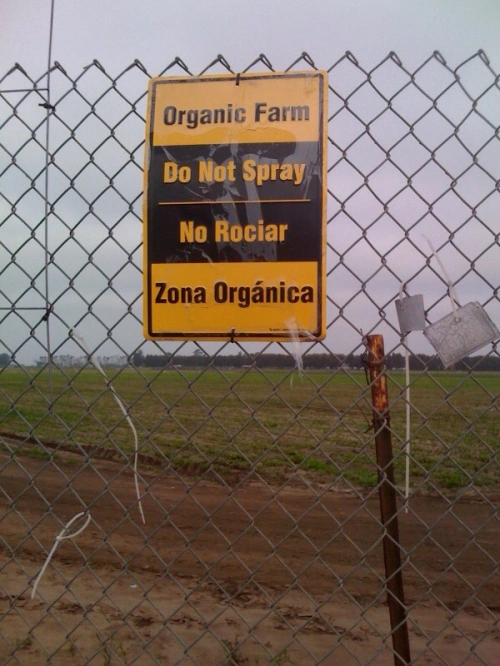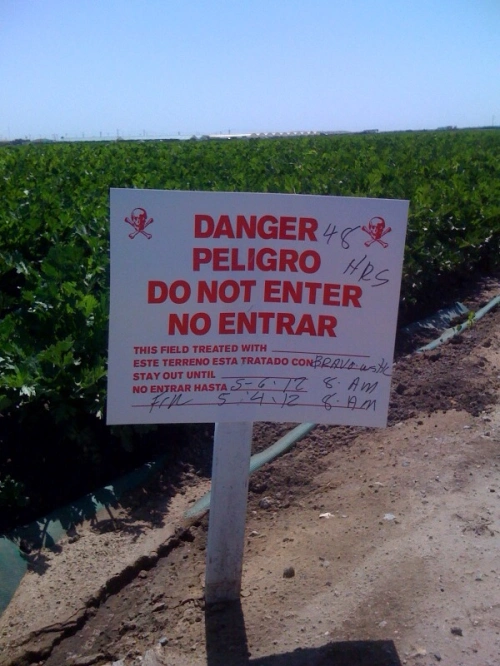Organic farming is better than conventional farming at reducing gray water runoff, largely because it avoids the use of synthetic fertilizers, but organic farming methods alone have limitations when it comes to achieving water-sustainable food production as do organic Concentrated Animal Feeding Operations (CAFOs). A sign posted on a field I often pass reads, Organic farm. Do not spray, referring to the spraying of pesticides. But water efficiency is not a requirement for the USDA Organic Certification. It’s not uncommon to see blue water being sprayed on these fields from tall sprinkler heads, rain or shine. Often the sprinklers are on during the hottest time of day when water loss due to evaporation is at its peak. Sprinkler irrigation is second to flood irrigation, in which water is spilled onto the fields and flows indiscriminately around the crops, as the most inefficient method to irrigate crops.
The cabbage found in the organic section of the supermarket may be grown by the same producer of the non-organic variety. I use cabbage as an example because it so happens that the organic farm I just mentioned grows cabbage, as does the field directly across the road from it, which is marked with a sign that reads Danger, do not enter. This farm has been sprayed. One day I stopped at the organic farm and approached a farmworker making her way to her car at the close of the day.
“Do you know who owns the field across the road?” I pointed to the straight lines of cabbage.
“Yes,” she said. “It has the same owner as this farm.”
The cabbage found in the organic section of the supermarket may be grown by the same producer of the non-organic variety. I use cabbage as an example because it so happens that the organic farm I just mentioned grows cabbage, as does the field directly across the road from it, which is marked with a sign that reads Danger, do not enter. This farm has been sprayed. One day I stopped at the organic farm and approached a farmworker making her way to her car at the close of the day.
“Do you know who owns the field across the road?” I pointed to the straight lines of cabbage.
“Yes,” she said. “It has the same owner as this farm.”


click to Read & Leave a comment
Click to close comments
Comments